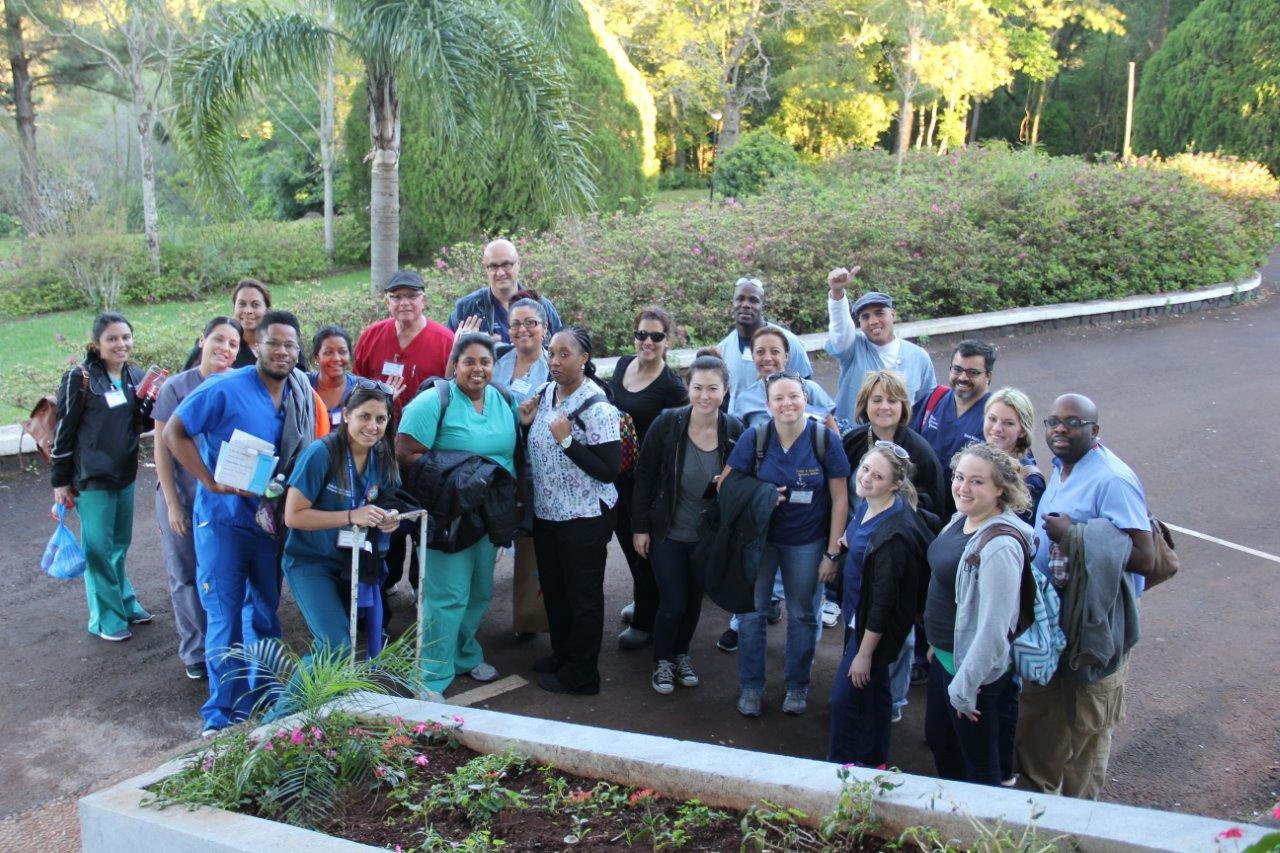Here in the United States, we take things like food, going to the doctor for check-ups or even running water for granted. But for people in other countries, these everyday conveniences are seen as gifts. The doctors of Florida Hospital understand this so they generously donate their time with the Florida Hospital Global Mission Initiative, which was formed with the mission of providing medical care for those in need around the world.
One of the physicians who travels on these semi-annual trips is Dr. Marc Santambrosio, FACEP, FAAEM, medical director of Florida Hospital in East Orlando. “The Global Mission Initiative is an entire department who specializes in missions,” he says. “Since I was a kid, I knew I would practice medicine and that it would reap special rewards. Through college, I was an EMT and worked in an ambulance, so I always knew at that point.”
So, when the time came for him to practice, Dr. Santambrosio was eager to join the group. “Every time one of my partners came back from a mission trip, they loved it,” he says. “They felt refreshed and renewed.”
Global Mission Trips
As a group, the department has traveled to Haiti, Ethiopia, Peru, Guatemala and Argentina, along with other countries. Dr. Santambrosio says different physicians specialize in various areas of medicine including surgery and the dispensing of medicine. Florida Hospital nurses, CEOs, and administrators take part in the missions as well as representatives from the maintenance, security and transportation departments. The local nursing schools at the destinations serve as interpreters. In some cases the doctors do not even need interpreters. Such was the case for a past mission as all seven of the physicians who went were bilingual, Dr. Santambrosio says.
Last September, the group ventured to Argentina. “The place where we went, they have nothing. They don’t even have running water,” Dr. Santambrosio says. Because of this, many of their treatments covered general health education. “We had a little girl that had bad urinary tract infections and it was due to a lack of personal hygiene,” he says. “So we taught her that.”
Healing Joy
Another doctor who went along on the missions is Dr. Steven Nazario, associate program director of the emergency medicine residency. “We deal with a lot of high-tech things here in the U.S., and there it was mostly hygiene,” Dr. Nazario says. “There were issues concerning general health and nutrition, along with proper eating and the use of vitamins.”
For the doctors on this Argentinian mission, it was all about going back to the basics to help the people of the village develop habits for good health. “Plus, they had sanitation issues that we aren’t used to in the U.S.”
They treated mostly children and the elderly. “One lady, who was 74, walked seven miles to come to our clinic,” Dr. Santambrosio says. “Amazing. We treated her for high blood pressure. After, I couldn’t let her walk the seven miles back, so we gave her a ride.”
Blessings for Everyone
One poignant story was about a 4-year-old boy suffering from hydrocephalus, a genetic disease that affects the brain. Dr. Santambrosio remembers that he was blind, deaf and unable to walk, but he could eat. “They bring him into the clinic and I was talking to my partner and we didn’t know what we could offer the kid,” he says. “In the States it would have been hard enough but we had nothing.”
Dr. Nazario continues, “Hydrocephalus is when you have too much fluid in the brain, and the skull has to expand to accommodate. If you don’t relieve the pressure, you end up squishing the brain inside. The mother brought in this limp child in a wheelchair and he hadn’t been able to walk.”
The doctors spent a bit of time with the boy and talked to the mother about her child. “My partner, Nazario, went to visit with him and came back and said there is nothing we could do,” Dr. Santambrosio says. “The family of the boy grabbed a nurse, and she said since her son was diagnosed with this horrible disease he was shoved aside like a broken toy, like he was not human. But this was the first time that a doctor or nurse took the time to examine him.”
Drs. Nazario and Santambrosio showed the family that, yes, the boy has a lot of problems, but he is still a human being. “It was not only beneficial to him but to us,” Dr. Santambrosio says. “We showed the family that we cared. Those 15 minutes that my partner spent with him, it was more than medicine can do. Telling this story I still get choked up.”
The doctors who participate in Florida Hospital’s Global Mission Initiative know that they are giving a gift to the people they are helping but they are receiving a gift too. They are touched to not just be treating a disease but to be treating the person. “Sometimes we forget that,” Dr. Santambrosio says. “It isn’t just a broken arm, there is a person attached to it.”
Dr. Nazario says that while his professional career can take a lot out of him, he is still humbled after 22 years as a physician. “To put a human face on being a doctor, to be able to deal with this boy and his mother with respect, was quite humbling.”



